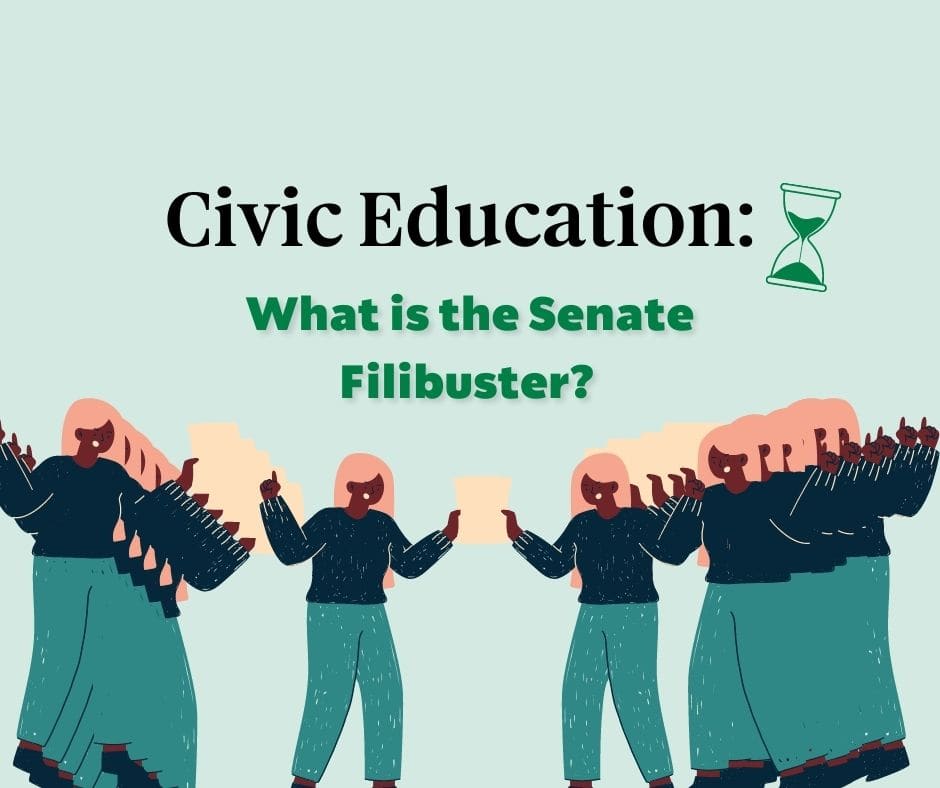
What is the Senate Filibuster?
Do you support abolishing the filibuster?
What is the Senate filibuster?
- In the U.S. Senate, a filibuster is a technique used to prolong debate in order to delay or block a vote on a bill.
- Filibusters can also be used by Senators to draw attention to a specific issue, gather public support, or negotiate modifications to a bill.
- A filibuster can be ended by invoking cloture or if those conducting the filibuster choose to end it voluntarily, which would allow the Senate to move forward with a vote. To invoke cloture, at least three-fifths of all Senators (normally 60 votes) must vote in favor of it.
History of filibusters in Senate
- In 1917, the Senate changed its tradition of the right to unlimited debate. The rule allowed a two-thirds majority vote to end a filibuster. However, as a two-thirds vote is difficult to obtain, filibusters remain an effective method for blocking legislation.
- In 1957, Strom Thurmond attempted to block a civil rights bill with a 24-hour filibuster on the Senate floor; making it the longest single-person filibuster in history.
- A study by the Center for American Progress found that Republicans have used the filibuster roughly twice as often as Democrats.
- More recently, Senate Republicans have used filibusters to prevent a Democratic bill aimed at advancing voting rights and to block a bipartisan, independent investigation into the January 6th Capitol attack.
- Senate Democrats have used filibusters to block Senator Tim Scott's (R-SC) police reform bill, the JUSTICE Act, and block funding for the construction of former President Trump's border wall.
How filibusters impact policy
- Attitudes towards the filibuster vary based on who has control in the Senate.
- Filibusters can pose a significant roadblock to partisan proposals. If the legislative filibuster were to be eliminated, the Senate's approach to legislation would resemble that of the House, which operates on a majority basis rather than relying on bipartisanship for most legislative matters.
- Filibusters can prevent a simple majority from passing policies that do not have broad support and can lead to more moderate and consensus-driven legislation.
- However, filibusters can also hinder meaningful debate, disproportionately empower the minority party, and weaken the Senate’s efficiency.
- In 2020, former president Barack Obama referred to the filibuster as “another Jim Crow relic" used to prevent passing significant legislation.
- President Joe Biden supports ending the Senate filibuster to legalize abortion and pass voting rights bills, stating the filibuster is “being abused in a gigantic way”.
How do you feel about ending the Senate filibuster?